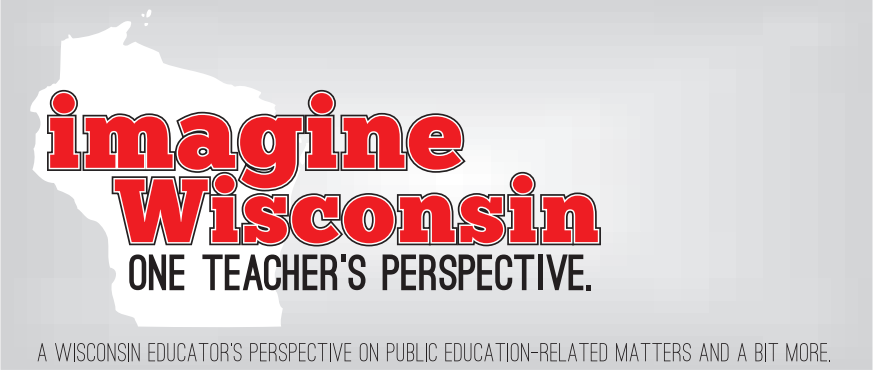Gov. Walker’s address chiefly pandered to his conservative colleagues and the Wisconsin business community. However, he did have some parting advice for angry Wisconsinites, like me. Gov. Walker’s final thought: “Don’t personalize your differences.”
Instantly, Gov. Walker’s concluding message reminded me of the often-repeated Godfather line, “It's not personal Sonny, it's strictly business.” Similarly, Gov. Walker might view this past year as strictly business from his distant perch, but for those of us directly affected by his radical initiatives—it’s not business, it’s justifiably personal.
Public education is personal. Schools involve people—not products. Gov. Walker may be able to emotionally detach himself from the educational funding policies he implements, but I take Gov. Walker’s political agenda personally when I see my students (and my own children) going without important services and programs thanks to his radical shift in the public school aid formula.
It is understandably personal when Gov. Walker’s initiatives directly harm my family. The adverse effects of Gov. Walker’s cuts to education hurt my children—now serviced in factory-like class sizes. My wife and I (both educators) now have to manage more with less and for less in our classrooms. Additionally, the unexpected tens of thousands of dollars my wife and I will pay out over the course of our professional careers as part of Gov. Walker’s initiatives is a real hardship on our middle-class family budget—especially on the heels of funding our own professional development (graduate work).
Discrimination feels personal—especially when Gov. Walker talks of “shared sacrifice,” but targets only teachers and public servants to fill the state deficit. Gov. Walker is well aware that the state budget deficit was the direct result of a recession created by unregulated investors--who recklessly spurred and crashed a housing bubble. I take it personally when these same investors get out of paying one extra penny while hard-working, middle class public workers foot the bill for their mistakes. Equally egregious, Gov. Walker gushed in his speech about a $100 savings in property taxes for some Wisconsinites, yet he insensitively ignores the thousands of dollars individual teachers and public servants sacrificed to make this happen.
I am personally offended when Gov. Walker fawns over the ideas business leaders have for running our state, but then hypocritically ignores the insights and experience of educational leaders. It is personal when I see non-educators, like Gov. Walker and his bureaucrats, implementing unproven business measures—like merit pay, data-driven education, and competition—into our collaboratively designed profession. I take it personally when my union rights--that have provide steadiness, perspective, and common mission to public education—are stripped for political purposes.
Education is an intricate, intimate, and people-driven profession. Business-minded politicians, like Gov. Walker, must learn that public education is much more personal, complex, democratic, and multifarious than most business environments. A diversity of educators, taxpayers, parents, and students all have a voice in this complicated conversation.
This teacher’s final thought: “Education is not a business Gov. Walker, it’s personal. To sincerely move Wisconsin’s schools forward—let’s use more personal touch.”






